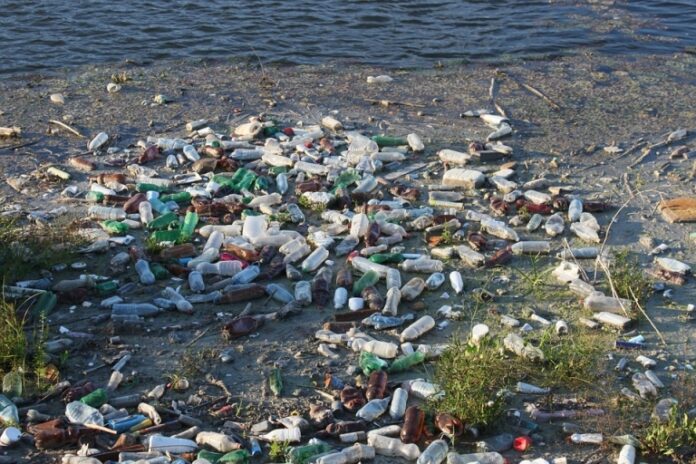One Romanian in seven considers that plastic waste in nature has become a major problem in Romania and 60% of them believe that financial or legal sanctions would be the best measure against littering and illegal dumping, shows a study conducted by WWF-Romania (World Wide Fund for Nature).
„In the absence of measures, plastic pollution is an economic burden, costing an estimated 20 trillion USD globally, according to a WWF report, given that 40% of all waste is packaging. According to international estimates, by the end of 2024, 770 million tonnes of plastic waste will be produced worldwide, of which almost 10% (70 million tonnes) will end up in nature, which is beyond the normal waste management capacity,” the organisation’s pres release shows.
The survey points out that the presence of plastic waste in nature is one of the biggest environmental problems in the country, along with deforestation, water pollution, air pollution, desertification and rising temperatures. Thus, Romanians are eager to get actively involved in protecting nature by collecting waste, encouraged by actions such as the Zero Plastic Patrol project, implemented annually by WWF-Romania, and 46% say that it would motivate them to act against environmental problems if the area where they live is in danger.
„Plastic pollution has become an endemic problem in Romania. In Brasov and the Danube Delta alone, we have collected thousands of kilograms of waste annually through the Zero Plastic Patrol programme and, although awareness and education is increasing among Romanians, plastic waste is constantly present in the natural environment, affecting ecosystems, causing damage that is difficult to repair in the long term. In fact, our survey shows that 56% of Romanians believe that there is far too much waste in nature and that more and more of them are increasingly aware of the devastating impact of plastic pollution on the environment and, in particular, on their communities. Through dedicated pollution reduction programmes, our organization is constantly fighting to preserve nature, from mountains to rivers and the Danube Delta, which is one of Romania’s treasures. In parallel with intensifying our education and awareness programs, as well as stimulating recycling initiatives, urgent measures are needed at the national level and we call on authorities, companies and citizens to work together to find viable solutions to combat plastic pollution. It is vital to act quickly to prevent the irreversible degradation of nature, through a change of behavior and active involvement,” said Monia Martini, Green Economy Projects Manager at WWF-Romania and coordinator of the Zero Plastic Patrol programme, quoted in the press release.
Asked who is currently collecting plastic waste from nature, 62% of Romanians say that environmental NGOs are most involved, followed by citizens and garbage collection companies, respectively the city hall for 26% of respondents. Asked who should be responsible, the study shows that most Romanians, 72% of them, believe that they themselves are responsible for collecting garbage from nature. In their opinion, next are the garbage collection companies (64%), the city hall (61%) and other people (53%).
Under these conditions, Romanians support the need for a series of measures to protect nature, with most of them, almost 40%, believing that imposing financial and legal sanctions on all those who cause environmental problems is the best way to limit littering.
Moreover, 18% think that changing the education system is the most effective measure, and 14% believe that changing public policies is a good alternative. In contrast, 10 percent think environmental awareness campaigns are the best solution.
At the same time, when asked what would motivate them to take action against environmental problems, 47% cited natural disasters as the main reason. In addition, 46% of Romanians would be more involved in protecting the environment if the area where they live was in danger, and 41% if there was an environmental crisis.
WWF – Romania (World Wide Fund for Nature) is one of the most important organizations specialised in environmental conservation. The organisation’s priority conservation areas are Maramures, Transylvania, South West Carpathians, Apuseni Mountains, Lunca and Danube Delta. WWF – Romania (World Wide Fund for Nature) is part of WWF International, an organization that has existed for over 60 years in more than 100 countries on 6 continents.
AGERPRES




